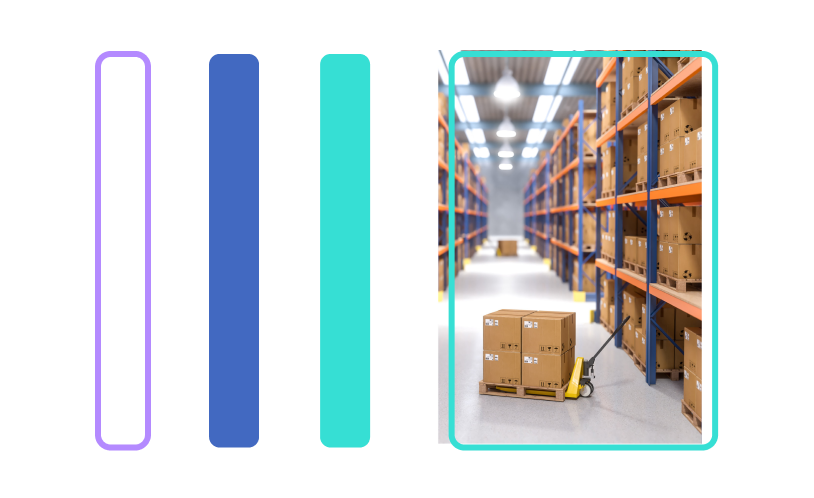We’re not ready for it.
Said nearly every airline executives I’d speak to about instant eBooking. In twelve years of meetings, air cargo leaders have always been enthusiastic about pricing automation. Faster quoting meant more sales time and higher win rates. But this defeatist responses continued to echo, until about three years ago.
Since then, every large airline is rushing to deliver cargo eBooking to customers. To see an entire industry get its act together, practically overnight, is exhilarating. The speed also begs the question… what happened? Here’s what I think happened (and why they’re getting their APIs together).
The Waiting Game
These days, almost everything you would want to buy is readily available online. Air freight got stuck. While the speed of forwarder online pricing’s adaption is impressive, the bottleneck is further down. Customers book, or request a booking, then staff manually checks availability and books. This frequently creates a lag and, sometimes, a loop of repeat pricing when space isn’t available.
This isn’t a forwarder issue, going direct to the airline won’t help. The internal technology airlines use is not sophisticated enough to update capacity in real-time. Space showing when a booking request is made may already be allocated.
Outside peak periods, most bookings take thirty minutes or so to get confirmed (or at least another thirty minutes if they don’t). While that may not sound so bad, try amplifying that 30-minute lag by hundreds of thousands of bookings and you’re talking huge efficiency holes. It’s worse, though, for airlines who only have their operations team in limited time zones. After 5 pm, when their team has finished for the day, that wait will be more like twelve hours. Over a long weekend, it will be more like 96 hours.
Why Instant Booking Was So Hard
Money.
Lack of it held airlines back. Most air cargo businesses are a poor relation to passenger travel, making up just 9% of revenues. Without anything like the same revenue, they get nothing like the same level of capital investment. No surprise their internal systems aren’t well connected. Express freight specialists work off all-encompassing (but expensive to implement) ERPs, but that’s a pipe dream for most airlines who, instead rely on EDIs to link their systems. But, if they can’t instantly connect their pricing, booking and capacity management functions (respectively, that’s typically from their RMS, TMS and CRM systems), they can’t provide instant booking.
In fact, nothing has really changed since GF-X air cargo marketplace tried to blaze a trail in 1998, eventually discontinued because, tellingly, forwarders tired of spending 30 minutes plus securing a booking.
Some Carriers Gave Up Waiting
Recently, there’s been a breakthrough, though, with increasing revenues and new logistics technology making it possible to meet their customers, and their own, growing expectations.
Most cargo airlines are coming off several years of strong financial performance. A big part in the turnaround has been ecommerce’s continued growth.
But airlines have been put on notice. These cargo owners live and die on providing a great online experience and expect their services to provide the same. In fact, all customers expect better. They don’t want to pay the exorbitant costs for super-quick booking and shipping services. They don’t want to wait for booking confirmation. Air cargo, after all, is supposed to be about rapid turnaround time. And with airline’s largest contracted BCOs using the spot market for 10% of their shipments, those airlines that first differentiate with fast service at reasonable prices stand a lot to gain.
That’s being made possible by the new logistics technology. Freight digitalization improves service and reduces cost – no surprise, then, that industry attitudes have changed. Global forwarders discovered this earlier than carriers, and they can automate every step to provide instant quoting and booking on their customer portals, except air cargo booking. They’re pushing carriers to change.
SAS, who still have the most advanced online offerings, was the pioneer, releasing instant online booking in mid-2015. To date, they’ve been following by a few of the biggest airlines – Air France/KLM, Lufthansa, IAG and Delta Cargo. The cost of implementation wasn’t high, no new ERP platform, they simply augmented their EDIs with APIs to instantly connect pricing, booking and capacity management functions. And that’s a big step toward eBooking.
APIs Opens Doors
APIs have many advantages over EDI, like carrying richer, more flexible data and are far easier to implement, but the clinch is they connect in real time. They’re perfect for instantly connecting air carrier pricing, booking, and capacity management functions. Air France/KLM and Lufthansa not only offer instant booking on their website (which takes more work) but are now even more accessible to forwarders through Freightos WebCargo (we’ve done that extra work already).
By getting their APIs together, airlines can improve customer connectivity in real-time. Lufthansa is leading the way with a great stack of readily available APIs any customer to connect with.
APIs are also better for internal connectivity too, helping internal teams perform tasks like quoting and booking once, instantly, without reminders to check, without errors, without strings of communication. A mantra from the last IATA World Cargo Symposium was “It takes an average of three days for a shipper to get a quote”. With APIs, it takes thirty seconds.
eBooking also pre-shadows dynamic pricing, something passenger air travel perfected over the past four decades, and something I’m even more passionate about helping airlines achieve. Air France/KLM and, on a more limited scale, Lufthansa is already there, but we’re currently helping several others join with them.
You can still count on one hand how many air cargo carriers have got their APIs together – SAS, Delta, Air France/KLM, Lufthansa, and IAG. But, the situation is changing fast. All the big airlines want to connect with WebCargo, and several have signed up already.
I think of it as reframing a problem. Instant booking isn’t too hard. Same goes for better customer connectivity, better internal operations, and even dynamic pricing. Airlines can be ready, fairly quickly it turns out, when they get their APIs together.



